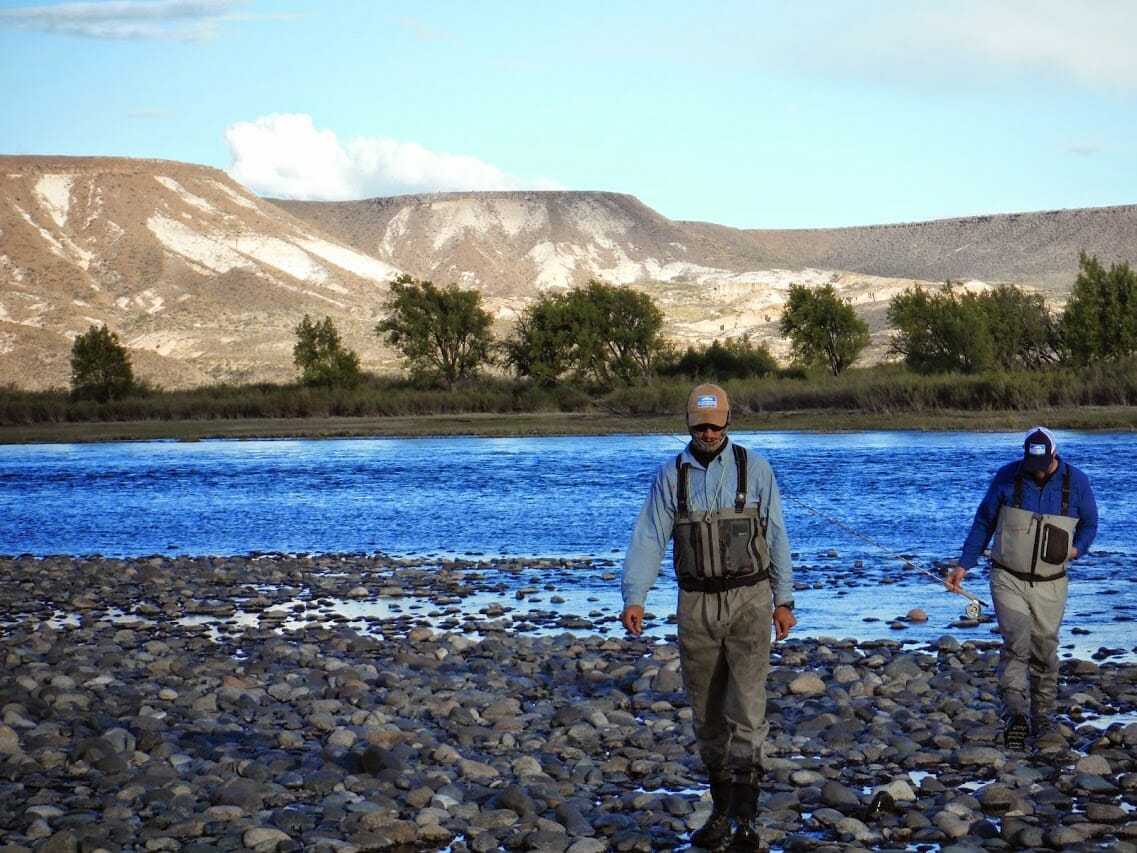Hang ’em up? Febreze? Voodoo incantations? Let us know!
Brett Prettyman: Wait, there is a way to deal with stinky waders? Why didn’t anybody tell me? Through the years several companies have sent me a miracle product they claim will remove the smells that build up in waders over time. None of them worked. The only thing I’ve smelled that is worse than waders is hockey gear. I covered hockey for more than a dozen years. NHL and minor league trainers told me getting the gear dry as soon as possible after use was key. They also relied heavily on Febreze. I tried it once, but wading material seems to repel the spray — not a surprise. I turn waders inside out when I’m not using them and hang them rather than keeping them stuffed in a wader bag. It seems to help, but I have yet to come across a truly effective method to cope with the putrid stench that can waft from well-used waders.
Kara Armano: Stinky waders is enough of an issue to devote time to? That’s news to me. As a female, I guess I only realized this was a problem because companies like Loon Outdoors sell a product made specifically to clean waders (or at least they used to). Sure, I’ve had the odd day where smells leaked from my active digestive system after a bean burrito once I loosened my wader belt, but overall, I don’t find my waders odiferous. Am I alone here ladies?
Sam Davidson: And here I thought one must simply “embrace the eau” if one uses waders (which I do, only until I can wet wade without causing the circulation in my lower parts to become glacial in its movement). The hang-and-dry, then turn inside-out and repeat, is the only remedy I’ve found even somewhat effective. I’d add that what you wear as a base and/or thermal layer makes a difference in the potency of the exhalation when you remove your waders at the end of the day. For me anyway, synthetic materials, regardless of brand, act as stench-intensification agents. Go cotton or old-school wool, baby. And Brett’s right: the smell of sweat-saturated hockey gear makes even the rankest pair of waders seem a fair parfum in comparison.
Mark Taylor: Kara stole my line. It really is amazing how well good waders trap human-produced methane. Honestly, other than hanging them (not inside out) I don’t do anything else and never really have had a problem with wader funk. And it’s not like I don’t have a good sniffer — thanks to its impressive size and, therefore, large number of olfactory sensors. Maybe it’s because I often wear merino wool (not that scratchy old school stuff Sam likes) as my base layer.

Chris Hunt: For the record, I despise waders. And unless the air and water combine to make wading wet untenable, I simply don’t wear them. But here in eastern Idaho, if you’re going to fish between October and May, you’re either going to cast from the bank or you’re going to wear waders to stay warm (by staying dry, of course). And that opens up the very real possibility that you’re going to leave behind some funk when you take the waders off at the end of the day. There are lots of remedies used to banish the aroma left behind by a sweaty fishing crotch in a pair of “breathable” waders, but I’ve only discovered one solution that works. It’s simple, but it takes some time, and it needs to be done after each use — no exceptions. When you remove your waders, don’t just stuff them in the back of the truck. Hang them over the tailgate, or, at the very least, hang them up as soon as you get back home or back to camp. When they’re dry, turn them inside out and hang them up again. They’ll air out nicely and with the moisture goes the stench from your sweaty lower half. If you’re really serious, once you turn them inside out, a little mild dish soap and warm water can be used to spray down the offensive regions of the garment (don’t clutch your pearls — crotch sweat is pungent), so long as you thoroughly rinse it off and then let the waders dry again. Also, just to be clear, I don’t believe Mark and Kara. At. All.
Tim Romano: Burn them. In all seriousness check out the line of stuff from NikWax. Their stuff is incredible and the enviro story is very cool. I have a PR contact if you need it. Turn your waders inside out immediately at end of day to let them dry. This company also makes some pretty cool stuff. It seems cheesy for waders, but I’ve used the portable driers on my ski boots for years and they really don’t smell any more.
Shauna Stephenson: Remind me to never invite Tim to my house. My initial thought was if you can smell my waders, then you’re probably too close and need to get out of my bubble. But not everyone has that four-foot-of-personal space requirement, and after riding in a vehicle with a few pairs of stinky waders, I get that this can be an issue. So, for the close-talkers out there, I checked in with the experts over at Simms. According to Lindsey Vincent, PLM for softgoods and Renee Johnson, repair center lead, tossing them in your washer and dryer is just fine (as long as they are not boot foot waders). Use a mild soap, but avoid pouring it on the fabric and a very light setting on the dryer to avoid peeling off the tape. Or to be certain, hang dry overnight. “Lots of people do not realize that you can wash your shell garments made from Gore-Tex.” Vincent says. “If the garment has all zippers closed, Velcro flapped down and pockets empty of those candy wrappers, you can wash on the warm permanent press cycle, use very light detergent and then transfer to the dryer and tumble on warm without any dryer sheets. This also gives the durable water repellent a boost or reactivates the water repellent treatment. Barring that (because as Chris points out, there’s no washer and dryer in his camper and sometimes you’ve got to control the stink) the light scrub and air dry is right on.
We feature a Trout Talk post every day. You can read them all here.



